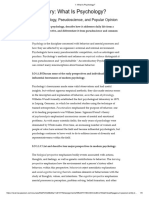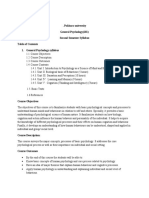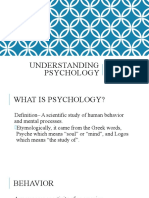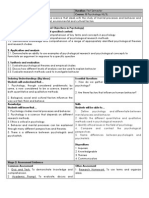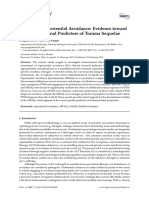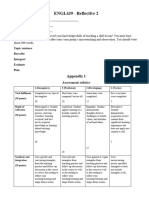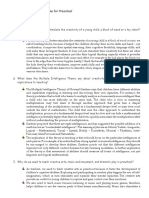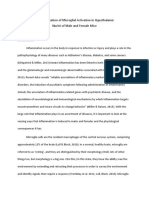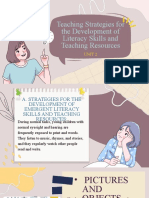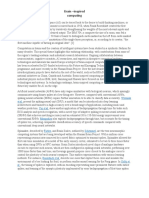0% found this document useful (0 votes)
10 views30 pagesL1 - Intro To Intro
The document outlines the syllabus for the Intro to Psychology course (PSY201-75) taught by Dr. Freya Edlin, including course materials, grading scale, and assignment breakdown. It emphasizes the importance of mutual respect in discussions, critical thinking skills, and offers guidelines for late assignments and contacting the instructor. Additionally, it introduces key concepts in psychology such as the biopsychosocial approach and positive psychology.
Uploaded by
kmragerCopyright
© © All Rights Reserved
We take content rights seriously. If you suspect this is your content, claim it here.
Available Formats
Download as KEY, PDF, TXT or read online on Scribd
0% found this document useful (0 votes)
10 views30 pagesL1 - Intro To Intro
The document outlines the syllabus for the Intro to Psychology course (PSY201-75) taught by Dr. Freya Edlin, including course materials, grading scale, and assignment breakdown. It emphasizes the importance of mutual respect in discussions, critical thinking skills, and offers guidelines for late assignments and contacting the instructor. Additionally, it introduces key concepts in psychology such as the biopsychosocial approach and positive psychology.
Uploaded by
kmragerCopyright
© © All Rights Reserved
We take content rights seriously. If you suspect this is your content, claim it here.
Available Formats
Download as KEY, PDF, TXT or read online on Scribd
/ 30













